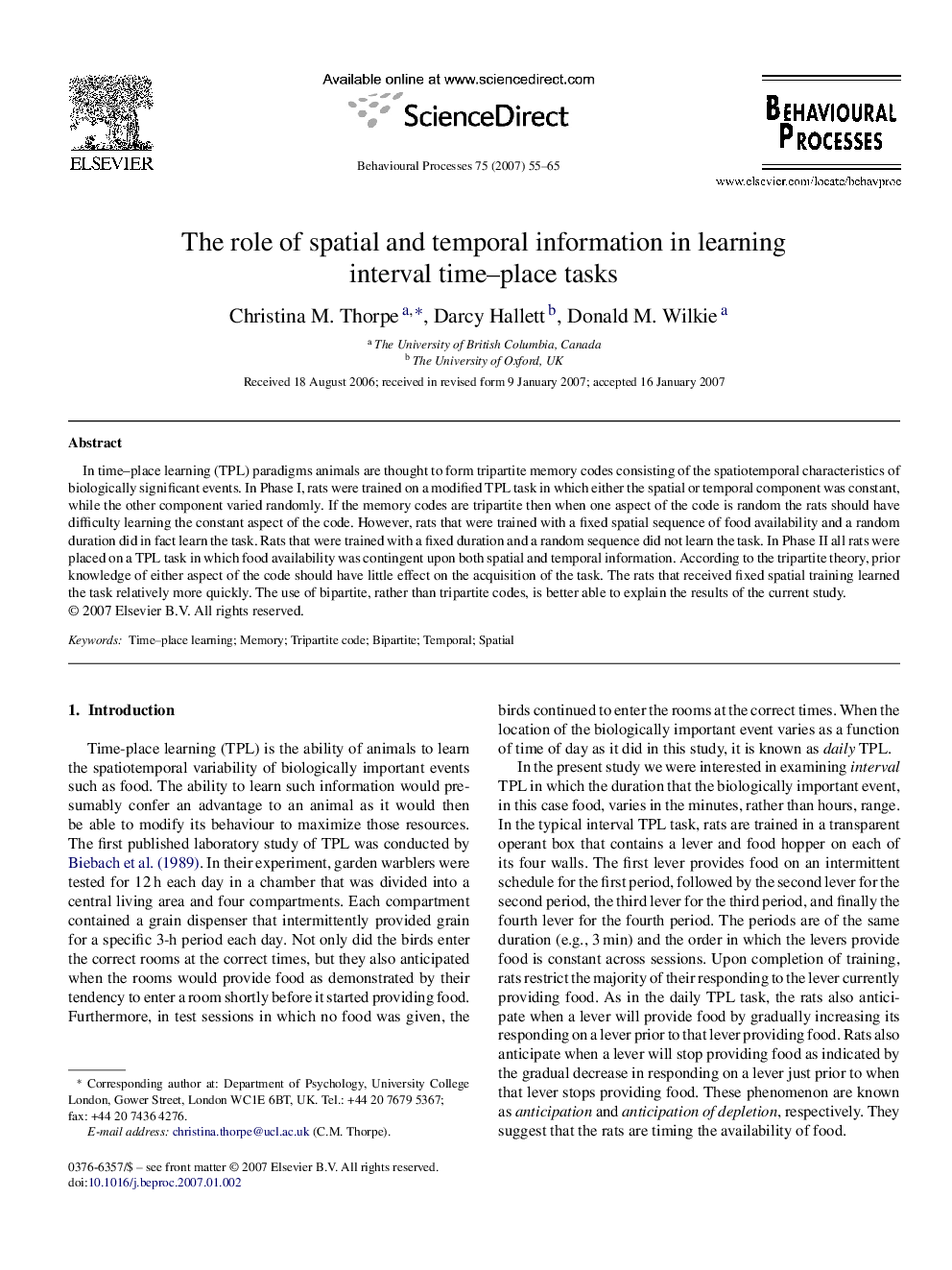| Article ID | Journal | Published Year | Pages | File Type |
|---|---|---|---|---|
| 2427690 | Behavioural Processes | 2007 | 11 Pages |
In time–place learning (TPL) paradigms animals are thought to form tripartite memory codes consisting of the spatiotemporal characteristics of biologically significant events. In Phase I, rats were trained on a modified TPL task in which either the spatial or temporal component was constant, while the other component varied randomly. If the memory codes are tripartite then when one aspect of the code is random the rats should have difficulty learning the constant aspect of the code. However, rats that were trained with a fixed spatial sequence of food availability and a random duration did in fact learn the task. Rats that were trained with a fixed duration and a random sequence did not learn the task. In Phase II all rats were placed on a TPL task in which food availability was contingent upon both spatial and temporal information. According to the tripartite theory, prior knowledge of either aspect of the code should have little effect on the acquisition of the task. The rats that received fixed spatial training learned the task relatively more quickly. The use of bipartite, rather than tripartite codes, is better able to explain the results of the current study.
